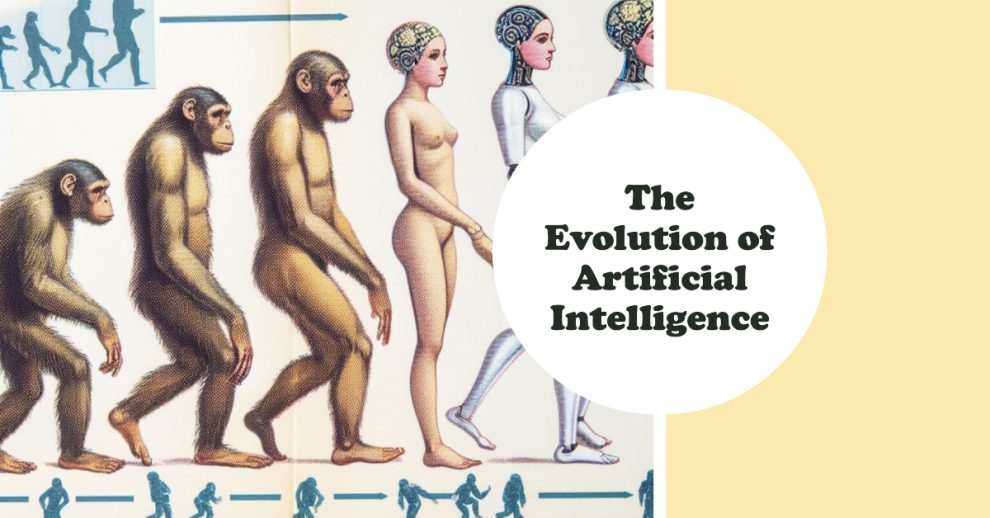Artificial intelligence (AI) has gone from science fiction fantasy to a ubiquitous force shaping our world. From self-driving cars to medical diagnosis and robotic assistants, AI’s impact is undeniable. But how did we get here? Let’s embark on a thrilling journey through the evolution of AI, revisiting significant milestones and achievements that paved the way for its present prominence.
The Dawning of Artificial Minds (1950s – 1980s):
The seeds of AI were sown in the mid-20th century with the visionary works of pioneers like Alan Turing. His 1950 paper, “Computing Machinery and Intelligence,” introduced the Turing Test, a benchmark for measuring a machine’s ability to exhibit intelligent behavior equivalent to, or indistinguishable from, that of a human.
In the following decades, groundbreaking programs like ELIZA and SHOGUN demonstrated the potential of AI for natural language processing. ELIZA mimicked psychotherapeutic conversation, while SHOGUN played a mean game of checkers, even defeating chess grandmaster Harry Kasparov in 1995.
The Rise of the Machines (1990s – 2010s):
The 1990s witnessed a surge in AI research and development, fueled by advancements in computing power and machine learning algorithms. Deep Blue, a chess-playing supercomputer, famously defeated Kasparov in 1997, marking a watershed moment in human-machine competition.
The same period saw the emergence of practical AI applications like the Roomba, a robotic vacuum cleaner, and voice assistants like Siri and Alexa, demonstrating AI’s increasing integration into everyday life.
The Age of Deep Learning (2010s – Present):
The 21st century ushered in the era of deep learning, a revolutionary approach to AI inspired by the structure and function of the human brain. Deep learning algorithms excel at pattern recognition and data analysis, leading to breakthroughs in various fields.
ImageNet, a vast database of labeled images, played a pivotal role in training deep learning models for image recognition, while AlphaGo, a program developed by DeepMind, stunned the world by defeating world champion Go player Lee Sedol in 2016.
Beyond Milestones: Achievements and Impacts of AI
AI’s achievements extend far beyond these landmark events. It has revolutionized diverse fields, including:
- Healthcare: AI algorithms assist in disease diagnosis, drug discovery, and personalized medicine.
- Finance: Fraud detection, algorithmic trading, and automated financial advisors are powered by AI.
- Transportation: Self-driving cars and intelligent traffic management systems improve safety and efficiency.
- Manufacturing: AI robots optimize production processes and perform complex tasks with enhanced precision.
- Climate Change: AI models predict weather patterns, analyze environmental data, and develop sustainable solutions.
Challenges and the Future of AI
Despite its remarkable progress, AI faces challenges that require careful consideration:
- Bias and Fairness: AI algorithms can perpetuate societal biases if trained on biased data. Mitigating bias and ensuring fairness in AI development is crucial.
- Job displacement: Automation through AI raises concerns about job losses in certain sectors. Rethinking education and job training programs is essential for adapting to a changing work landscape.
- Ethical considerations: Issues like AI transparency, accountability, and responsible use of AI in sensitive areas like law enforcement need ongoing discussion and robust ethical frameworks.
The future of AI is brimming with possibilities and challenges. By addressing these issues proactively and harnessing AI’s potential responsibly, we can navigate towards a future where AI empowers humanity to tackle our most pressing challenges and forge a brighter tomorrow.
















Add Comment